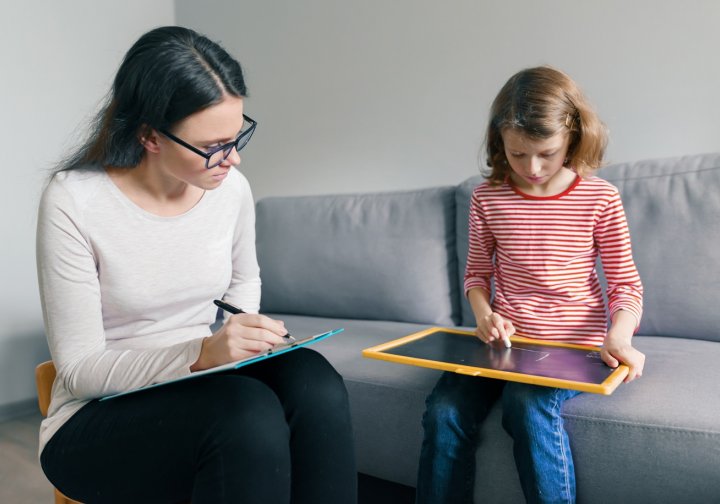Blog

How does a session with a child psychotherapist work?
Every parent wants their child to be happy and content. However, when emotional or behavioral difficulties arise, parents may feel helpless. You may be asking yourself: Will therapy help my child? What will the sessions be like? Will my child enjoy it?
Child psychotherapy is designed to help children better understand their emotions and manage challenging situations. Let's take a look at how a session unfolds and what you can expect.
The first consultation: a conversation with parents
During the first visit, the psychotherapist first meets with the parents to understand how they can help the child. Together, you will discuss what is troubling your child, how they react to various situations, and their relationships within the family and at school. This step is crucial for the therapist and you – you can ask any questions you may have and gain a clearer idea of the next steps.
The first meeting with the child
Children perceive therapy differently than adults. To make them feel relaxed and safe, psychotherapists often use playful and creative methods. For example, younger children may build with blocks or draw stories – all of which help the therapist understand their emotions and thoughts.
Older children and teenagers, on the other hand, may engage in conversations and express their feelings verbally. The therapist does not force them to talk but creates a space where they can share whatever they feel comfortable with. If a parent is present at the first session, it is important not to disrupt the therapy process and allow the child to express themselves in their way.
What does the ongoing therapy look like?
Every child is unique, so psychotherapy is tailored to their individual needs. The goal is to help the child process emotions, cope with traumatic experiences, develop communication skills, and build healthier relationships.
Therapy does not provide immediate solutions, but children learn to better understand themselves and their surroundings through regular sessions. A crucial part of the process is also cooperation with parents, who can support their child in applying new strategies in daily life.
At the same time, a psychotherapist at the Psymed clinic can work with a child psychiatrist to determine the ideal treatment approach or recommend a consultation with a doctor about possible medication.
How can you support therapy as a parent?
Parents play a key role in the therapeutic process. You can support your child by:
-
Giving them space to share without forcing them,
-
Accepting their emotions without judgment,
-
Cooperating with the therapist and applying recommendations at home.
Psychotherapy can be an invaluable support for a child. They can learn to manage stress, build healthier relationships, and gain greater self-confidence through it. If you are unsure whether therapy is suitable for your child, do not hesitate to consult our professionals and find the best solution together.
